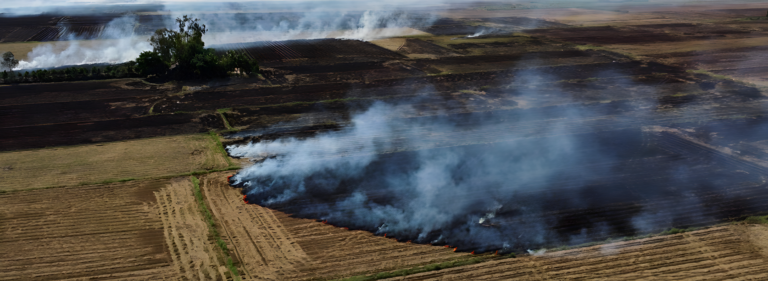How the USAID Reducing Pollution project fosters collective action to tackle plastic waste in Vietnam
By: Hanh Nguyen, USAID Reducing Pollution project.
The USAID Reducing Pollution project team is working on a five-year project to support locally-driven initiatives that substantially reduce environmental pollution in Vietnam through a collective impact approach. The project is helping to build the capacity of government, local nongovernmental organizations and private sector partners to prevent, mitigate and reduce environmental pollution, and to increase the capacity of stakeholders to generate, share and use pollution data to design and implement policy solutions to pollution challenges.
The issue of plastic pollution transcends national borders. It is now a major global problem with far-reaching environmental and economic implications. Vietnam, alone, loses an estimated $2.2 to $2.9 billion dollars annually due to unrecovered plastic waste and associated pollution, according to one recent World Bank study. In response, the country is taking decisive steps to develop and enact comprehensive solutions.
Funded by USAID and implemented by Winrock International, the Reducing Pollution project is supporting the Vietnamese government to tackle plastic waste and other forms of pollution in Vietnam. Here are two key project initiatives aimed at reducing plastic pollution and fostering a circular economy – which, according to the U.N. Conference on Trade and Development, helps build markets that provide incentives for reusing products instead of scrapping them and extracting new resources.
Pioneering company, community and consumer responsibility for plastic waste reduction
Extended Producer Responsibility, known in the waste management industry as EPR, is one of the most effective policy instruments for enforcing the “polluter pays principle,” and is expected to substantially increase plastic waste collection and recycling in Vietnam. Since introduction in January 2024, EPR has become mandatory for both producers and importers of plastic packaging. However, it remains difficult for enterprises to fulfill their obligations while the collection system in is fragmented and largely conducted by informal actors.
The Reducing Pollution project is collaborating with a local NGO, GreenHub, and other partners to establish a functional EPR system for waste from plastic packaging. This work focuses on development of multi-stakeholder dialogues and pilot models to demonstrate the economic, social and environmental viability of EPR.
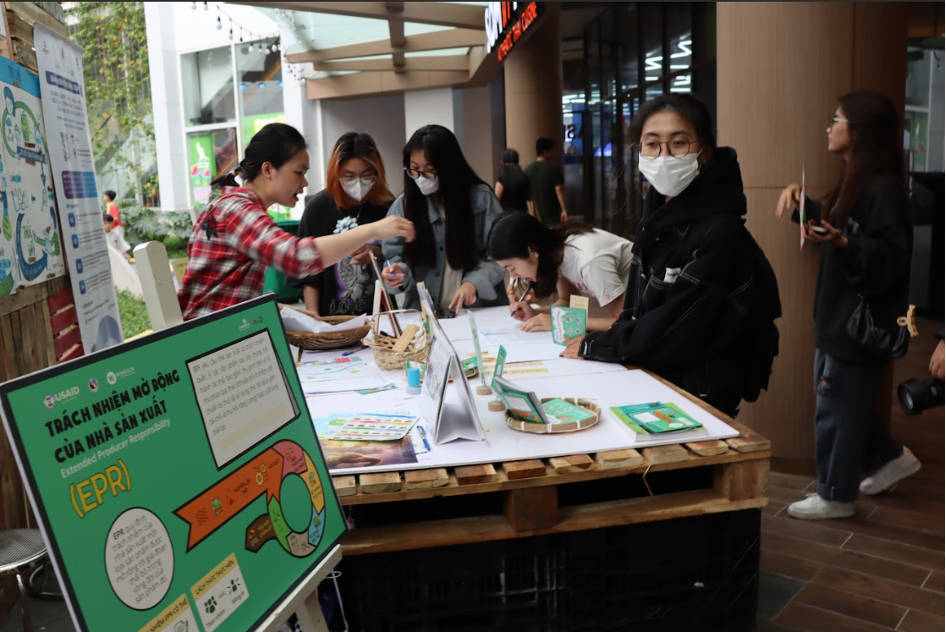
The project is cooperating with Vietnam’s Ministry of Natural Resources and Environment to organize an EPR Forum, scheduled for 2025, to gather experiences from businesses, discuss challenges and share practical solutions among companies to help them comply with EPR regulations. The initiative is also providing trainings on EPR for hundreds of small companies and entrepreneurs to help them better understand EPR policies and implementation.
A significant aspect of this initiative involves raising public awareness and behavior change on waste separation, collection and recycling. In August 2023, the project conducted training sessions on waste classification and environmental communication for local officials and organizations in densely populated areas of Ho Chi Minh City, Vietnam’s largest city, with a population of nearly 10 million. Participants gained insights into the impact of plastic waste on health and environment, fostering a sense of collective responsibility and motivation to change behaviors. GreenHub and partners have also organized events to raise public awareness and develop good practices and habits for waste separation, collection and recycling for communities.
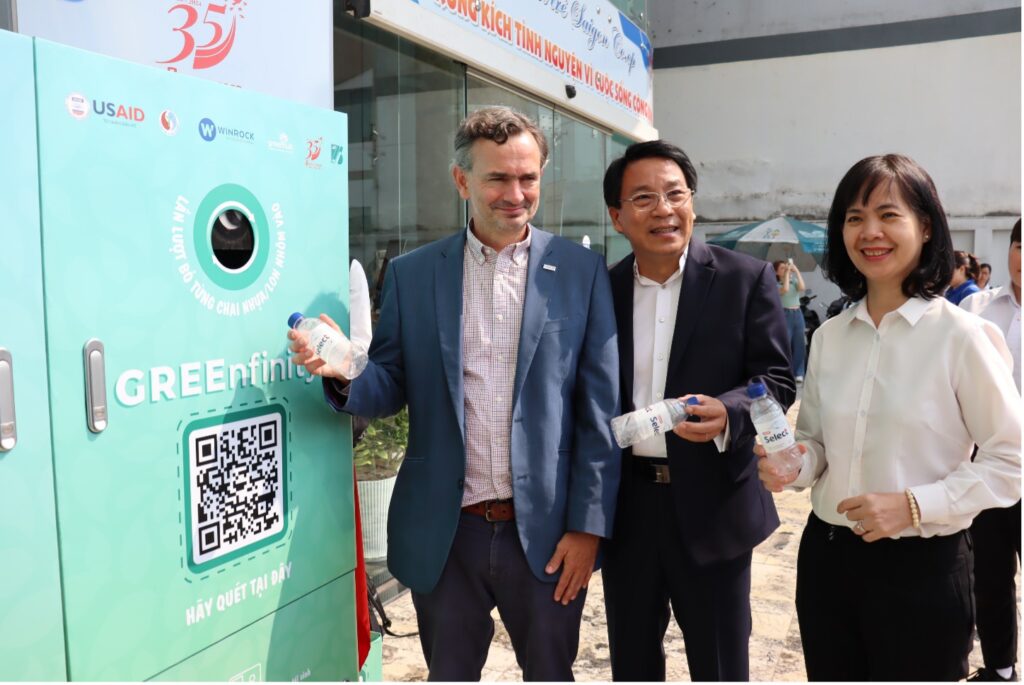
The Reducing Pollution project also collaborates with innovative local companies to leverage digital platforms for efficient waste collection and recycling. One such enterprise, VECA Ltd Co., a pioneering waste management tech firm, uses digital platforms to facilitate collection of recyclable waste, particularly plastics, in Ho Chi Minh City and Thu Duc City. Through a small grant from the Reducing Pollution project, VECA has enhanced its phone-based mobile application to facilitate and help to expand new connections between waste collectors, recyclers and consumers. Recycling events organized in collaboration with GreenHub and VECA in 2023 and 2024 have attracted thousands of residents, promoting waste classification and the responsible use of the recycling app.
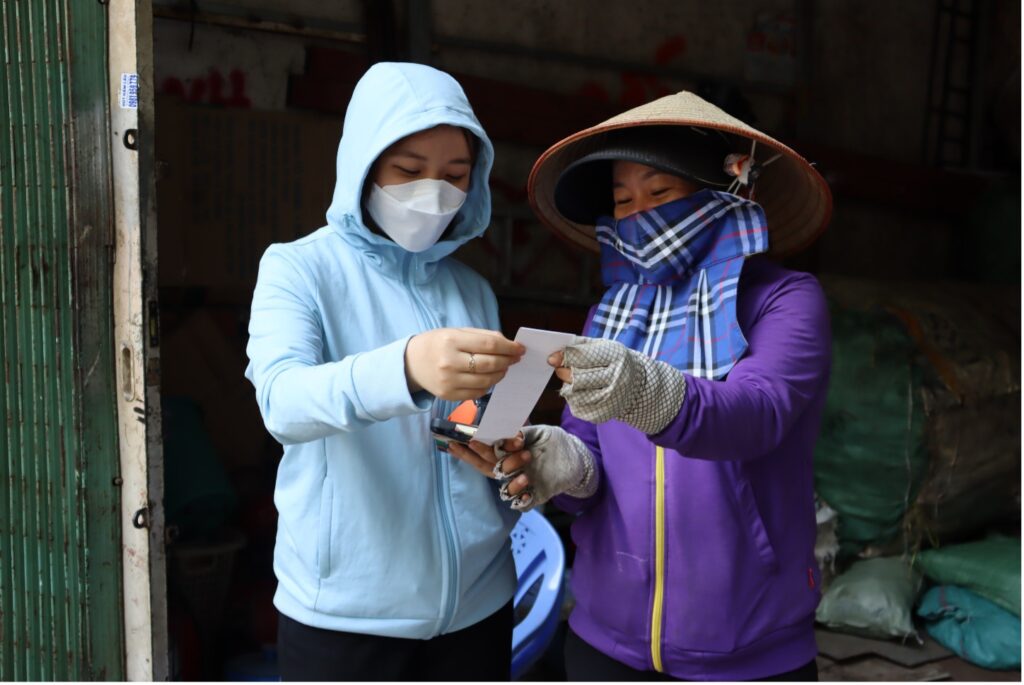
Saigon Co.op, a prominent retailer in Vietnam, has joined hands in the initiative, and is piloting its own waste circulation model and promoting EPR implementation. Its initiative includes installing “reverse” bottle vending machines ─ machines that allow people to insert used or empty plastic bottles, or aluminum cans in exchange for reward points ─ at retail outlets and raising awareness among customers about recycling. By engaging a wide network of supermarkets and suppliers, Saigon Co.op has become a champion for behavioral change and sustainable waste management practices for their customers and partners.
Development of a circular economy model in medical plastic waste management
Vietnam has more than 13,500 medical facilities, which generate a cumulative total of about 22 tons of plastic waste daily. Of that amount, infectious plastic waste comprises more than 65%. This high volume of plastic waste is largely due to the fact that plastic is widely used in different pieces of medical equipment, tools and materials, ranging from intravenous fluid lines to syringes, protective suits to medicine bottles, garbage bags and more. These products are often contaminated with infectious materials, which makes their reuse or recycling even more challenging than recycling of plastic waste generated by beverage or food consumption.
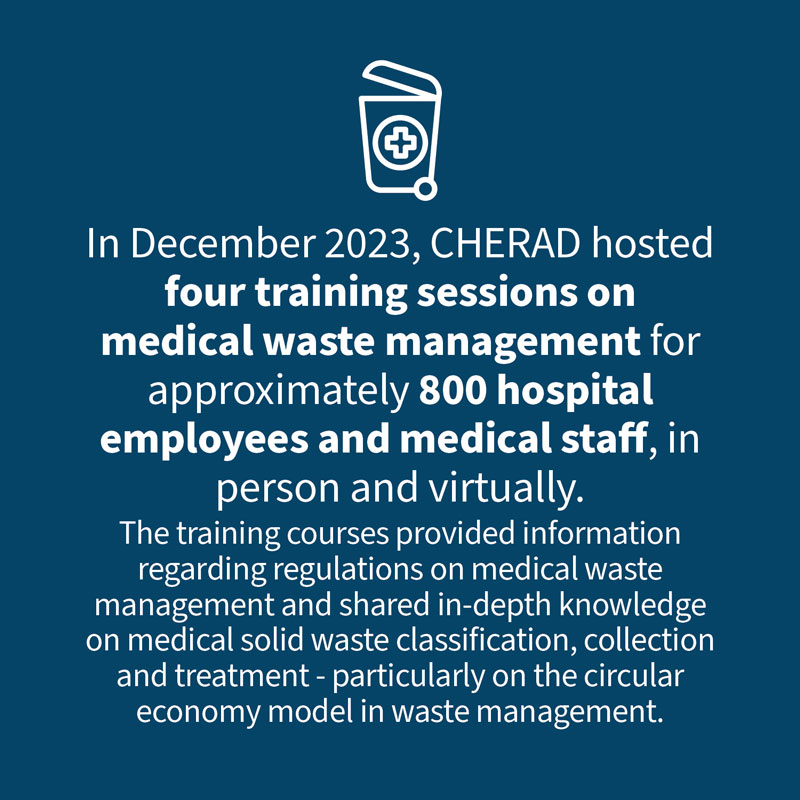
The Reducing Pollution project and local partners are confronting this massive challenge, with the goal of reducing the source of a substantial portion of the country’s plastic waste output. In collaboration with a local NGO partner, the Center for Health Environment Research and Development (CHERAD), the project is supporting hospitals to reduce medical plastic waste and increase recycling and reuse through introduction and application of a circular economy model. The program targets hospitals in the cities of Hanoi, Quang Ninh, Phu Tho, Can Tho and Binh Dinh to move toward sustainable medical waste management in the healthcare sector.
CHERAD has signed memorandums of understanding with several hospitals across Vietnam to pilot the circular economy model. The Reducing Pollution project is supporting the Can Tho Central General Hospital to install an autoclave system to disinfect medical plastic waste. This support includes training sessions on use of the autoclave to enhance the hospital’s capacity in waste separation and recycling , as well as communicating with patients, their families and hospital service suppliers to promote plastic waste reduction practices.
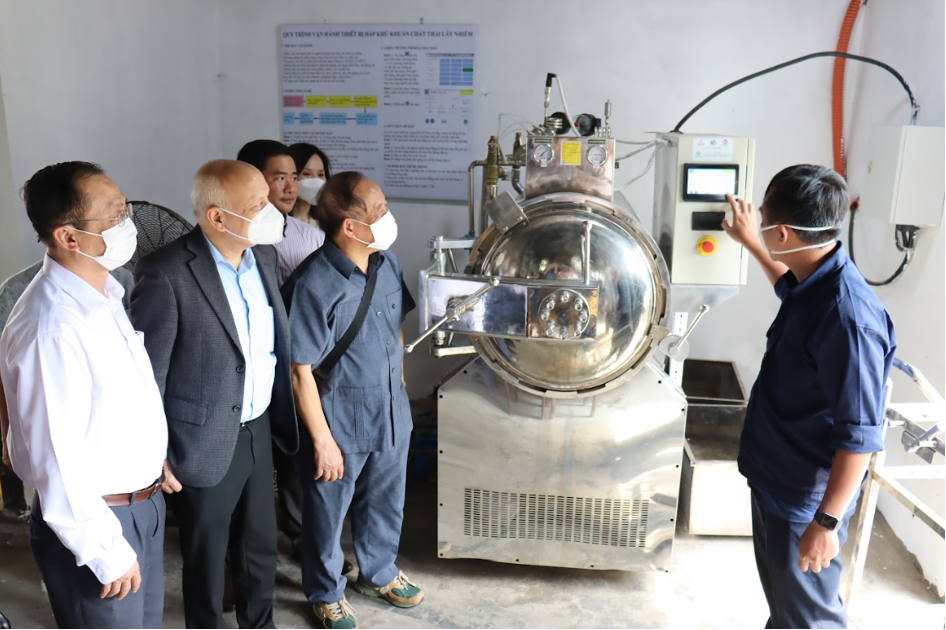
The initiative also emphasizes green procurement practices and engagement with buyers and recyclers to ensure efficient management of medical plastic waste. By piloting circular economy models in hospitals, the initiative aims to minimize environmental impact, reduce waste treatment costs and promote sustainable medical waste management practices in the healthcare sector.
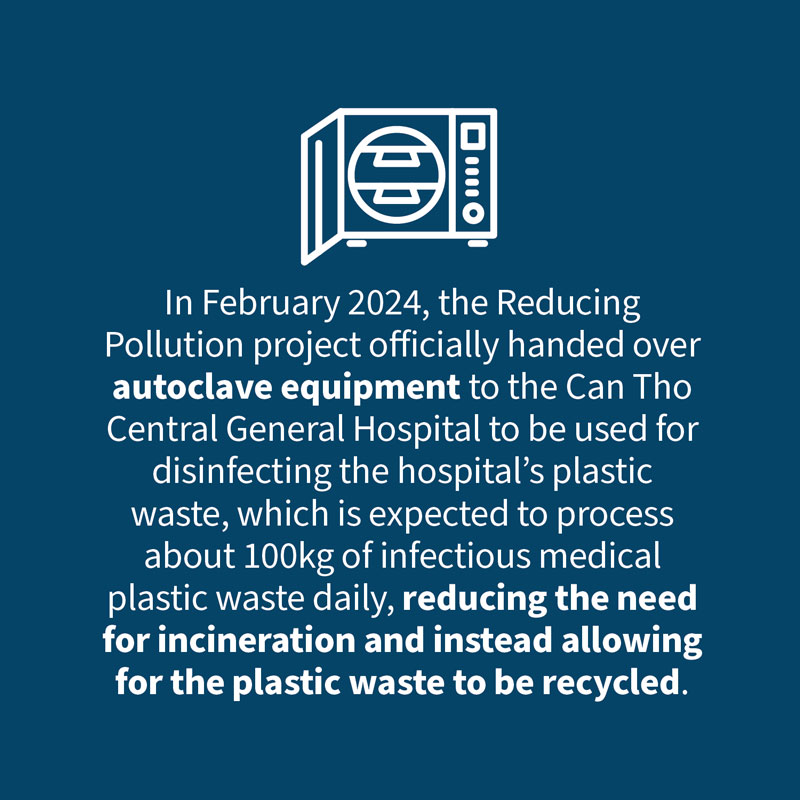
To replicate and maintain the model, the initiative supports policy development to integrate the model mechanism into medical plastic waste management regulations and to develop a network supporting sustainable medical plastic waste management. This work will help in the eventual establishment of a new Health Environment Management Association.
The initiatives undertaken by the Reducing Pollution Project in Vietnam represent proactive steps towards addressing the plastic waste crisis in Vietnam.
By fostering increased collaboration among stakeholders, empowering communities and promoting circular economy principles, these actions can pave the way for a more sustainable and resilient future, not only for Vietnam but for the entire global community.
Related Projects
